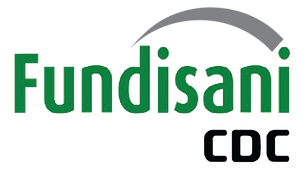Microsoft Project 2013
(Advanced)

Microsoft Project 2013 Advanced Training Course
Course Duration: 2 Days
Cost: R7,500.00 (Excluding VAT)
Training Material: Training Manual
Contact Hours/ Personal Development Units (PDU’s): 24
Course Overview
This elite two-day course will give you the opportunity to consolidate your grasp of planning and tracking, as well as fill in any missing gaps in your knowledge of Microsoft Project. You will come to fully understand those functions that you have longed to use but have not been able to, and will discover many other powerful features.
Planning and tracking is reviewed in depth throughout this course. The rigorous exercises and dynamic class atmosphere will allow you a thorough understanding of working with resources, costs and tracking, as well as tips on how to fine tune your scheduling skills.
The advanced features of Microsoft Project are explored, including customization, sharing data with Microsoft Excel, plotting graphs and S-curves, working with Earned Value, using your own customized fields and equations, and working with multiple projects.
This course is a “must” for all serious Microsoft Project users.
Target Group
This course is intended for both novice and experienced Project Managers and project support personnel who need to apply the discipline of Project Management using Microsoft® Project Professional 2013.
Prerequisites
Delegates enrolled for this course should have the following:
-
An understanding of Project Management concepts.
-
Knowledge of a Windows operating system.
-
A basic understanding of Microsoft Projects.
Course Outline:
Module 1: Introduction to Advanced Microsoft Project.
-
The New Features of Project 2013
-
Describe How Project Relates to the Discipline of Project Management
-
What’s New on Project 2013
Module 3: Managing Your Project
-
Define the Objective
-
Develop the Plan
-
Task and Deliverables
-
Carry It Out
-
Hand It Over
Module 5: Adding Structures
-
Project Structure
-
Summary of Tasks
-
Project Stages
-
Changing the Timescales
-
Outline Numbering
-
Subtasks
Module 7: Resources
-
Resource Sheet
-
Resource Information
-
Material and Cost Resources
-
Resource Notes
-
Assigning Resources
-
Multiple Resources
-
Team Planner
-
Timeline
Module 9: Project Calendars
-
Calendars
-
Project Defaults
-
Standard Calendars
-
New Base Calendars
-
Assigning a New Calendar
-
Task Calendar
-
Resource Calendar
Module 11: Conflicts and Constraints
-
Resource Conflicts
-
Resource Levelling
-
Manual Adjustments
-
Task Constraints
-
Applying Constraints
-
Constraints Conflicts
-
Viewing Constraints
-
Calculate Projects
-
Move Project
Module 2: User Interface
-
Understanding the New Ribbon Interface
-
The Task Tab
-
The Resource Tab
-
The Project Tab
-
The View Tab
-
The Format Tab
-
The Quick Access Toolbar
Module 4: Working with Tasks
-
Creating a New Task
-
Task Duration
-
Adding In Tasks
-
Task Dependencies
-
Linking a Tasks
-
Unlinking of a Task
-
Changing Dependencies
-
Moving a Task
-
Deleting a Task
-
Task Form
-
Project Milestones
-
Recurring Tasks
-
Inactive Tasks
Module 6: More about tasks
-
Lag Time and Lead Time
-
Task Inspector
-
Task Notes
-
Deadline Dates
-
Moving Around
-
Critical Path
-
Splitting Tasks
-
Moving Linked Tasks
Module 8: Project Costs
-
Project Costs
-
Resource Costs
-
Fixed Costs
-
Variable Resource Costs
-
Cost Rate Tables
-
Applying Resources Rate
-
Cost Resources
Module 10: Project Scheduling
-
User Controlled Scheduling
-
Automatic Scheduling
-
Fixed Unit Tasks
-
Fixed Duration Tasks
-
Fixed Work Tasks
-
Resource Contouring
-
Task Contouring
-
Setting a Baseline
-
Interim Plans
-
Clearing a Baseline
-
Backward-Scheduling
Module 12: Viewing Data
-
Views
-
Tables
-
Grouping
-
Fiscal Year
-
Filters
-
Auto Filter
-
Filter Criteria
-
Filter for Resource
-
Sorting
-
Highlight Filters
-
Fonts and Highlighting
-
Custom Fields
-
Graphic Indicators
Module 13: Reports
-
Printing a View
-
Page Setup and Scaling
-
Reports
-
Previewing Reports
-
Visual Reports
-
Copy Picture
-
Copy Report
-
Enhanced Copy/Paste
-
Share
-
Export
Module 14: Tracking progress
-
Progress Tracking
-
Completed Work
-
Part Completed Work
-
Percentage Completed
-
Duration Completed
-
Entering Costs
-
Updating as Scheduled
-
Actual vs Baseline
-
Tracking Gantt Chart
-
Budget Tracking
-
Project Statistics
-
Progress Line
Course Objectives
-
Understand the discipline of Project Management as it applies to using Microsoft Project.
-
Learn how to leverage the new Graphic User Interface (Ribbon).
-
Create a Work Breakdown Structure.
-
Identify Task Relationships.
-
Define Resources within Microsoft Project.
-
Make Work Package Estimates.
-
Learn how to leverage Team Planner.
-
Learn how to inactivate tasks.
-
Learn how to leverage the Task Inspector.
-
Learn how to leverage the timeline.
-
Create an initial schedule.
-
Create a resource leveled schedule.
-
Manage and track the project through the software.
-
Format output and print reports.
-
Integrate multiple projects.
-
Set up a project with a calendar, start date and scheduling method.
-
Understand manual schedule vs. auto schedule.
-
Manage multiple projects.



